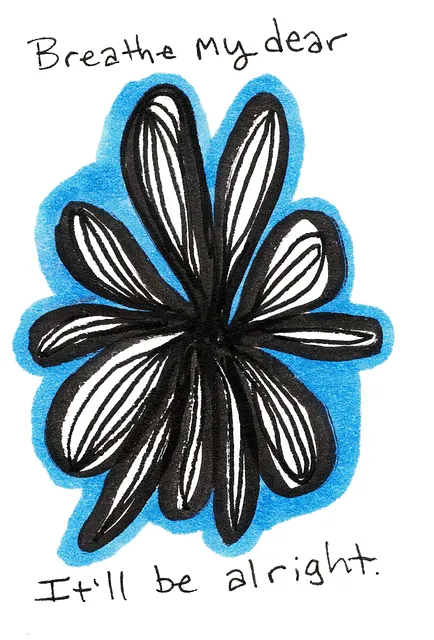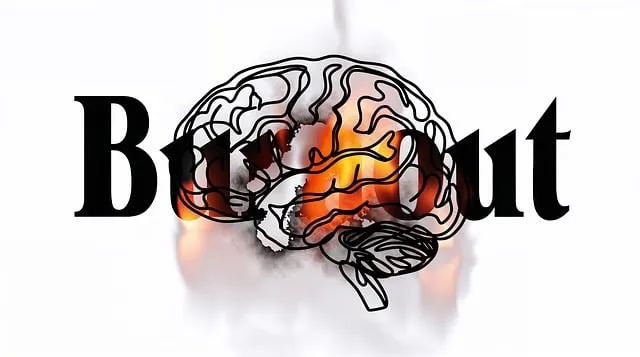The stigma around mental illness is a significant barrier to individuals accessing help from services like Parker Kaiser Permanente (PKP) mental health services. PKP leads the fight against this stigma with educational workshops, campaigns, and programs that dispel myths, promote understanding, and empower individuals with coping mechanisms. Their holistic care approach integrates therapeutic modalities, risk assessment tools, and Mental Wellness Coaching Programs to create an inclusive environment. Through accessible workshops, seminars, and online resources, PKP reduces stigma, normalizes help-seeking, and promotes overall well-being, making their services appealing to diverse populations. Additionally, advocacy and support groups foster communities that prioritize emotional healing with cultural sensitivity, leading to better patient outcomes. Media depictions and PKP's positive portrayals in films, TV shows, and news also contribute to a more empathetic public understanding of mental health struggles.
Mental illness stigma remains a significant barrier to seeking help. This article explores targeted efforts to reduce this burden, focusing on Parker Kaiser Permanente’s innovative mental health services as a model for best practices. We delve into educational initiatives aimed at raising awareness, the power of advocacy and support groups in building communities, and the influence of media representation in shaping public perception. Understanding these strategies is crucial in fostering inclusive support systems for those facing mental health challenges, including Parker Kaiser Permanente’s evidence-based approach to care.
- Understanding Stigma: Barriers to Seeking Help
- Parker Kaiser Permanente's Approach to Mental Health Services
- Educational Initiatives: Spreading Awareness
- Advocacy and Support Groups: Building Communities
- Media Representation: Shaping Public Perception
Understanding Stigma: Barriers to Seeking Help

Stigma surrounding mental illness is a significant barrier to individuals seeking help and support. Many people struggling with their mental health may feel ashamed or embarrassed, leading them to avoid reaching out for assistance. This internalized stigma can stem from societal perceptions, media portrayal, or even personal beliefs about weakness or failure. As a result, individuals might suffer in silence, fearing judgment or discrimination.
Efforts to reduce this stigma are crucial, especially through initiatives like the Community Outreach Program at Parker Kaiser Permanente mental health services. By organizing educational workshops and campaigns, they aim to raise awareness and promote understanding. Topics such as self-esteem improvement and stress management are often addressed to empower individuals with coping mechanisms. These programs can help dispel myths, encourage empathy, and create a more inclusive environment, ultimately encouraging those in need to seek professional assistance without fear of judgment.
Parker Kaiser Permanente's Approach to Mental Health Services

Parker Kaiser Permanente has been at the forefront of reducing mental illness stigma through innovative services and programs. They understand that destigmatizing mental health begins with accessible, comprehensive care. One notable approach is their integration of various therapeutic modalities within a holistic framework. This includes not just traditional talk therapy but also empowering practices such as mindfulness meditation, which has shown significant promise in improving mental wellness. Their commitment extends to providing resources for both patients and mental health professionals, including comprehensive risk assessment tools to ensure safe and effective treatment. Furthermore, Parker Kaiser Permanente supports the development of Mental Wellness Coaching Programs, offering a supportive network that encourages individuals to take proactive steps towards managing their mental health.
By combining evidence-based practices with a patient-centered approach, Kaiser Permanente aims to create an environment where seeking help is normalized. They recognize that mental wellness is not just the absence of illness but a state of overall well-being, fostering resilience and promoting healthy coping mechanisms. This inclusive perspective has contributed to their success in reducing stigma, making mental health services more appealing and accessible to a diverse range of individuals.
Educational Initiatives: Spreading Awareness

Educational initiatives play a pivotal role in reducing the stigma surrounding mental illness. Organizations like Parker Kaiser Permanente are at the forefront of this effort, offering comprehensive mental health services that include educational programs aimed at increasing self-awareness and understanding. These initiatives often involve workshops, seminars, and online resources that break down complex mental health issues into accessible, digestible information. By fostering self-awareness exercises, individuals can better recognize their own emotional regulation challenges and seek appropriate support.
Moreover, risk assessment for mental health professionals is an essential component of these educational efforts. Training healthcare providers to identify early warning signs not only benefits patients but also contributes to a more nuanced understanding of mental illness within the community. Through such initiatives, Parker Kaiser Permanente leads the way in destigmatizing mental health issues and promoting a culture where emotional well-being is prioritized and supported.
Advocacy and Support Groups: Building Communities

Advocacy and support groups play a pivotal role in reducing the stigma surrounding mental illness by fostering communities that prioritize emotional healing processes. Organizations like Parker Kaiser Permanente’s mental health services recognize the power of collective action, offering safe spaces for individuals to share their experiences, challenge stereotypes, and build mutual understanding. These groups cater to diverse populations, ensuring cultural sensitivity in mental healthcare practice, which is essential for effective treatment and improved patient outcomes.
By engaging in advocacy and joining support networks, individuals can enhance their emotional regulation skills, learn coping mechanisms, and gain valuable insights from peers facing similar challenges. This sense of belonging and empowerment contributes to breaking down barriers, encouraging open conversations about mental health issues, and promoting a culture of acceptance and care.
Media Representation: Shaping Public Perception

The media plays a significant role in shaping public perception about mental illness. Films, TV shows, and news coverage often contribute to the stigma surrounding mental health issues. However, positive shifts are emerging, with organizations like Parker Kaiser Permanente leading the way in promoting accurate representations of mental health services. By featuring relatable characters grappling with real-life mental health challenges, these media platforms can foster understanding and empathy among viewers.
This shift in representation encourages people to view individuals with mental illnesses as more than just their diagnosis, helping to break down barriers. Additionally, initiatives like confidence-boosting workshops and stress management programs organized by such institutions highlight the diverse support systems available. These efforts contribute to a growing narrative that emphasizes inner strength development, offering hope and inspiration for those seeking help.
Mental illness stigma reduction is a multifaceted effort that requires initiatives from healthcare providers, educational institutions, media outlets, and advocacy groups. As seen with Parker Kaiser Permanente’s innovative mental health services, providing accessible resources and reducing barriers to care can significantly impact positive outcomes for individuals struggling with their mental well-being. Educational awareness campaigns and supportive communities foster understanding and acceptance, while accurate media representation reshapes public perception. By combining these strategies, we can create a more inclusive society that encourages seeking help without fear of judgment.






